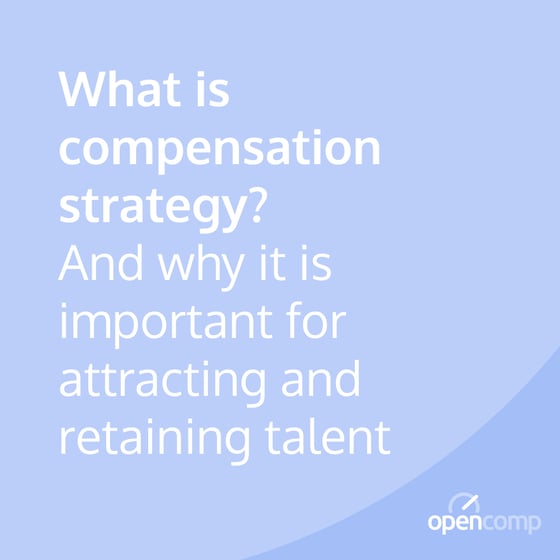More than any other employee group, executives have the power to steer the success and growth of a startup. Because of this influence, executive compensation typically consumes a considerable portion of payroll and your option pool. That’s why it’s important to understand who exec pay applies to and what to consider as your company develops an intelligent compensation program.
Executive compensation defined
For mature, venture-backed companies, executive pay refers to compensation for three layers of executives.
- The top five executives (CEO, COO, etc.)
- Senior and executive vice presidents
- General vice presidents
Unlike pay for the general workforce, executive compensation requires sign off from the board of directors or investors. For pre-IPO companies, these approvers generally focus on the top two layers.
Why executive pay is complex
The fact that investors and board members must approve exec comp makes it much more complicated than comp for employees. This is especially true if their preferences don’t align with a company’s stage or compensation philosophy, or if they’re unfamiliar with the nuances of equity ownership and how it affects burn and dilution.
To prevent friction, lead comp conversations with data, not opinions. That means having benchmarks based on fresh and reputable market data that’s relevant to your size, funding stage, industry and location.
Build this information into a compensation philosophy that reflects how your company plans to pay and reward its employees based on your goals, stage and finances. When questions or conflicts arise, turn to the data and comp philosophy for support.
Why it’s important to get exec comp right
Getting exec comp wrong can be costly in terms of cash, equity and turnover. A BuiltIn study found that replacing a C-suite position can cost 213% of that person’s salary. For someone earning $200K, that’s $426K.
Getting exec comp right means faster growth and stronger cultures. It also means a better ability to attract and keep top leaders, who many startup experts consider essential to success. Among these experts are nearly 900 venture capitalists surveyed by Stanford, who said the abilities of a founder and management team influence their decisions to invest more than product or technology.
It’s no wonder that Salesforce’s Marc Benioff’s, in best seller Behind the Cloud, writes “pursue top talent as if your success depended on it.”
Exec pay’s power to influence pay equity & DE&I
Executives aren’t immune from the gender pay gap.
In 2020, females in the C-suite earned 75 cents for every dollar a male counterpart earned. That’s less than the average for women overall who earn 82 cents for every dollar earned by male counterparts – a gap that’s wider for women of color.
Don’t overlook the opportunity to model a commitment to pay equity and diversity from your C-suite, executives and even your board.
To build a diverse and equitable company, executives and boards must have open discussions about it, analyze internal data and set recruiting goals and requirements. Successful cultural shifts are nurtured from the top.
Dive deeper into exec comp
Now that you know the basics, here are more resources to help you master executive pay.
Download our e-book, “The High-Growth Guide to Executive Compensation.”
Watch our on-demand webinar, “Exec Comp: A Fireside Chat with Salesforce’s Founding HR Team.”
__________________________________________________________________
Julia Dow is VP Services at OpenComp and has held compensation roles at VISA and Connery Consulting. She also writes about topics including compensation philosophy and executive compensation. Connect with her on LinkedIn here.


